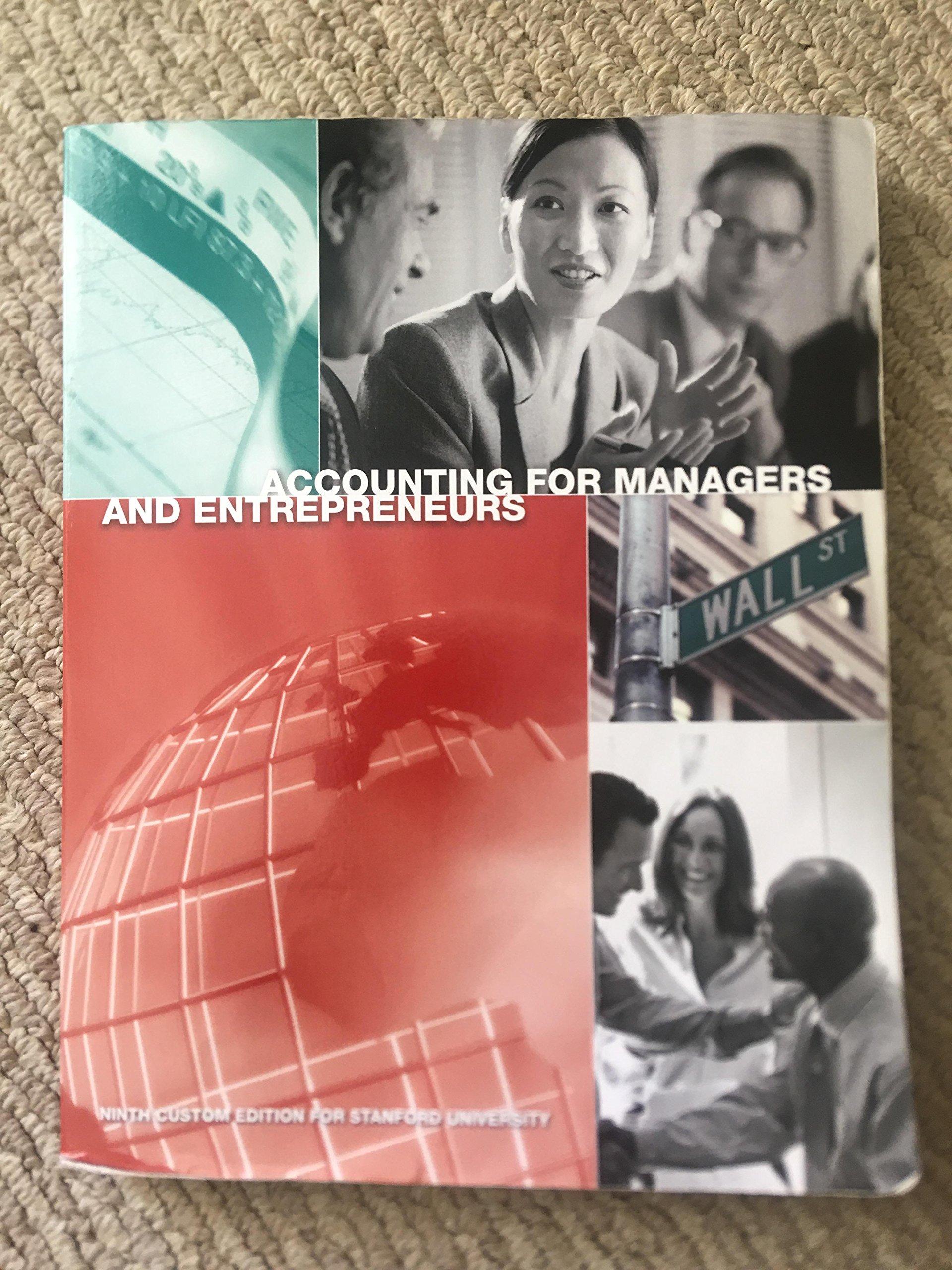Question
Old MathJax webview Q1. Which of these environments might be most suitable for an incremental budget? Q2. Which of these approaches to budgeting is likely
Q1. Which of these environments might be most suitable for an incremental budget?
Q2. Which of these approaches to budgeting is likely to incur the lowest cost?
Q3. In most profit-seeking businesses, which budget is generally prepared before all others?
Q4. In order to encourage optimal performance, budgets should be prepared to which of these standards?
Q5. Which of the following statements regarding budgeting is correct?
Q6. Identify the quickest and simplest approach to budgeting from the following; a) Incremental budgeting b) Continuous (rolling) budgeting c) Zero base budgeting d) Functional budge
Q7. Having clear lines of demarcation between divisions and sections to ensure that costs are properly allocated is one method of countering which budgeting misbehaviour?
Q8. Identify the incorrect statement a) A simple incremental budget can be drawn up by someone with little or no financial training b) A flexible budget demands accurate prediction of how costs behave over varying levels of activity c) Zero base budgeting is a relatively quick and cheap process d) Cash budgets should not include non-cash items
Q9. Which of these problems is most likely solved with rolling (continuous) budgeting?
Q10. Which of these features is mostly to be found in Zero Base Budgeting?
Q11. Which of these environments might be most suitable for an incremental budget?
Q12. In order to encourage optimal performance, budgets should be prepared to which of these standards?
Q13. Which of the following statements regarding budgeting is correct?
Q14.Regarding the rolling (continuous) budget which statement is false?
Q15.The budgeting has the benefit of different targets based on different levels of activity?
Q1. Which of these environments might be most suitable for an incremental budget? a) A local-authority leisure centre. b) A high-technology manufacturer. c) An investment bank. d) A software consultancy. Q2. Which of these approaches to budgeting is likely to incur the lowest cost? a) Zero- base budgeting. b) Incremental budgeting. c) Rolling budgeting. d) Cash budgeting. Q3. In most profit-seeking businesses, which budget is generally prepared before all others? a) Production budget b) Human resources budget c) Sales budget d) Capital expenditure budget Q4. In order to encourage optimal performance, budgets should be prepared to which of these standards? a) Basic standards which are easy to manage b) Normal operating standards without any adjustment for improvement c) Attainable standards difficult to achieve but possible in efficient conditions. d) Ideal operating standards which make no allowance for items such as material shortages, absenteeism etc. Q5. Which of the following statements regarding budgeting is correct? a) The senior financial person in the organisation should always prepare the budget. b) The firms budget manual is available for public consultation c) The budget officer is generally a senior member of the firms accounting staff d) The master budget is prepared first Q6. Identify the quickest and simplest approach to budgeting from the following; a) Incremental budgeting b) Continuous (rolling) budgeting c) Zero base budgeting d) Functional budgeting Q7. Having clear lines of demarcation between divisions and sections to ensure that costs are properly allocated is one method of countering which budgeting misbehaviour? a) Budget passing b) Profit-centred management c) Spending to the budget d) Budget slack Q8. Identify the incorrect statement a) A simple incremental budget can be drawn up by someone with little or no financial training b) A flexible budget demands accurate prediction of how costs behave over varying levels of activity c) Zero base budgeting is a relatively quick and cheap process d) Cash budgets should not include non-cash items Q9. Which of these problems is most likely solved with rolling (continuous) budgeting? a) Managers passing expenditure to other divisions. b) Managers losing faith in the budget as it quickly becomes obsolete. c) Managers spending their budget allocations for fear they will not be received next year. d) Managers preparing an easy budget which will require little effort to achieve targets. Q10. Which of these features is mostly to be found in Zero Base Budgeting? a) Speed of preparation b) Lengthy negotiation between budget holders and their reviewers c) Cheapness d) Lack of non-cash items in the budget Q11. Which of these environments might be most suitable for an incremental budget? a) A local-authority leisure centre. b) A high-technology manufacturer. c) An investment bank. d) A software consultancy. Q12. In order to encourage optimal performance, budgets should be prepared to which of these standards? a) Basic standards which are easy to manage b) Normal operating standards without any adjustment for improvement c) Attainable standards difficult to achieve but possible in efficient conditions. d) Ideal operating standards which make no allowance for items such as material shortages, absenteeism etc. Q13. Which of the following statements regarding budgeting is correct? a) The senior financial person in the organisation should always prepare the budget. b) The firms budget manual is available for public consultation c) The budget officer is generally a senior member of the firms accounting staff d) The master budget is prepared first Q14.Regarding the rolling (continuous) budget which statement is false? a) The budget is updated and extended frequently. b) There is much less risk of the budget becoming obsolete compared to a 12-month incremental budget. c) This type of budget quickly loses credibility with managers quickly because of its fixed nature. d) Individual managers may become irritated at being asked for budget data at frequent intervals. Q15.The budgeting has the benefit of different targets based on different levels of activity? a) Cash budget. b) Flexible budget. c) Incremental budget. d) Zero Base budget.
Step by Step Solution
There are 3 Steps involved in it
Step: 1

Get Instant Access to Expert-Tailored Solutions
See step-by-step solutions with expert insights and AI powered tools for academic success
Step: 2

Step: 3

Ace Your Homework with AI
Get the answers you need in no time with our AI-driven, step-by-step assistance
Get Started


